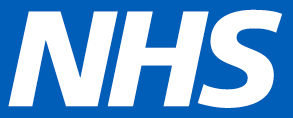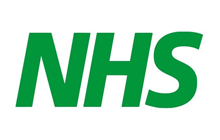
We supported BSW ICB and Greener NHS to test the Lower Carbon Care framework within maternity services so that valuable learning could be shared across systems.
Challenge
In October 2020, the NHS committed to delivering the world’s first net zero health service in response to the profound and growing threat to health posed by climate change. To achieve this, the NHS will need to design and deliver high-quality and evidence-based low carbon and sustainable care.
In November 2022, the Greener NHS team developed the ‘Low Carbon Models of Care’ framework, which aims to embed sustainability within planning and decision making. They identified BSW ICB as a pilot site to test this framework by applying it within maternity services.
The aim of this pilot was to understand how the framework could support the embedding of environmental sustainability thinking in the design of a clinical pathway. We were called upon to help achieve this aim, including gathering evidence-based learning which could be shared across systems.
What we did
Working in partnership with Bath and North East Somerset, Swindon and Wiltshire Integrated Care Board (BSW ICB) and their Chief Sustainability Officer Clinical Fellow, we engaged with key stakeholders to gather learning and insights on the Lower Carbon Care Framework and Tool, to understand how it can be applied in the design of changes to maternity pathways.
We initially met with the Greener NHS national team to hear about their findings from a pilot where they used the Low Carbon Model of Care Framework to assess how to embed sustainability into an eye care pathway. We gathered feedback on what worked well and did not work well in that project, which informed our approach to this work.
We also met with the Lead Local Maternity and Neonatal System (LMNS) midwife individually, to explain the importance of this piece of work and go through the Lower Carbon Care Tool in detail. We received valuable insights on the tool, and it produced some helpful outputs including visual graphs that were useful for identifying focus areas for more detailed exploration.
One of the core deliverables for this project was to engage with maternity service stakeholders involved in the design and delivery of a new centralised maternity triage service. This engagement was planned as a workshop, aiming to explore areas within maternity triage in BSW where carbon emissions could be reduced.
The workshop was well-received, achieved the intended outcome of increasing people's knowledge on the subject and helped start discussions on how to consider sustainability as part of the overall design of the maternity triage service.
Finally, the project team produced a detailed evaluation report and short summary slide deck of our findings, which was shared with NHS England to help support further development of the framework and will be shared with other ICSs for awareness and learning.
Activity
Carbon net zero
Adapted and completed the Low Carbon Care impact assessment tool with maternity triage information.
Produced a project evaluation report and short summary slide deck for sharing with other ICSs for awareness and learning.
System transformation
Effective project management support throughout the life of the project.
Organised and co-facilitated a workshop for Leads within Maternity Triage to gather opinions and ideas on how to decarbonise the pathway.
Impact
- We measured a considerable rise in workshop attendees’ understanding of what makes a care pathway lower carbon and more sustainable. This demonstrates the positive impact that even a 1-hour session can have in increasing understanding of sustainability within the design of care pathways.
- Insights around barriers/enablers/opportunities relating to sustainability within the maternity triage service were also explored as part of the workshop and recommendations shared back with BSW ICB for further consideration and action.
- This piece of work aligns with the key areas of focus of the BSW Green Plan 2022-25, which aims to adopt a whole systems approach to achieve net zero by 2040. This work will support them to embed sustainability thinking into care model design in future.
- The learning from this pilot will support the further development of the Lower Carbon Care Framework and help other systems understand how they can strategically consider environmental sustainability upstream within service change.







